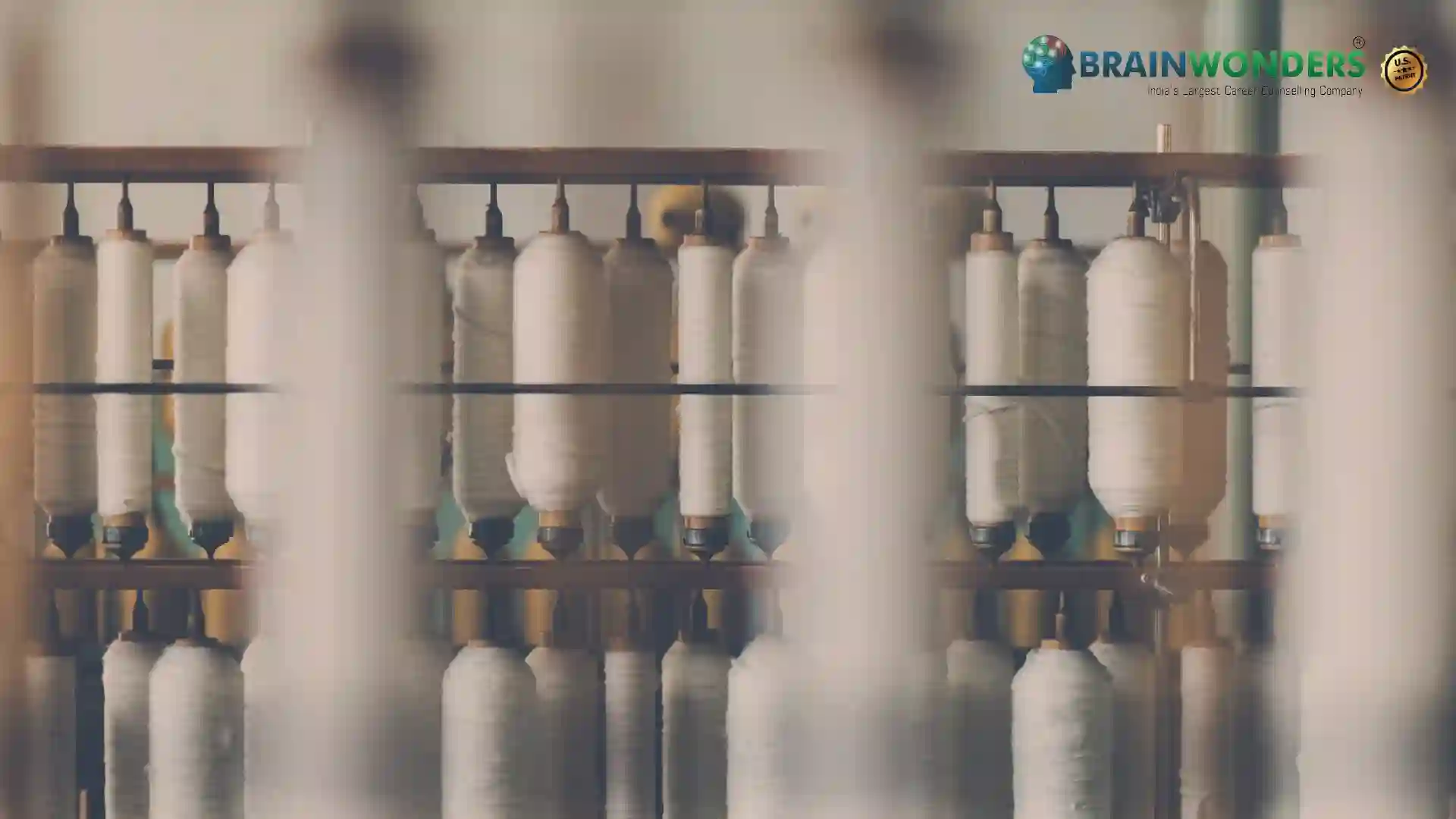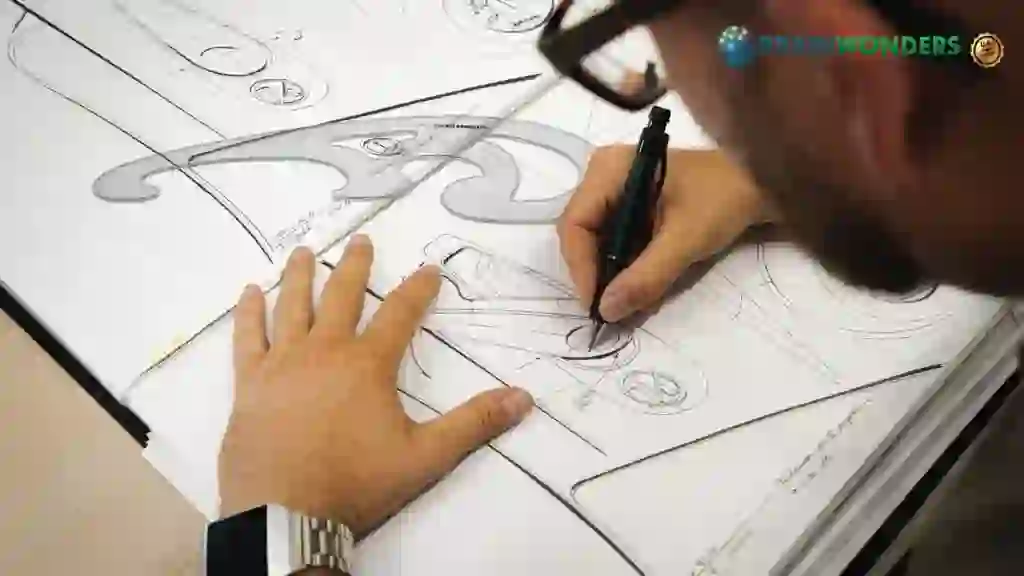How to become a Textile Technologist
Overview, Courses, Exam, Colleges, Pathways, Salary

Overview
Who is Textile Technologist ?
A textile technologist deals with all the activities and practices involved in the comprehensive process of textile manufacturing. Textile technologists are dynamic professionals involved in the design, management and control of the fiber, machinery, tools and products. They are proficient in chemistry, physics, mathematics and fiber science and have an informed knowledge of the process of creating and testing fibers from natural and synthetic sources.
Textile technology is used to create several types of fabrics, textiles and garments from yarn that are durable, safe and economical. Textiles include clothes, carpets, towels, bedsheets, medical supplies like bandages and hospital gowns, and even the lining of space shuttle cargo. Mainly textile technologists can be expected to work with manufacturers of industrial textiles, retailers, research and development organizations and so on.
Typical day at work
What does Textile Technologist do?
The role of a textile technologist comprises of the following tasks:
- Evaluate and select appropriate fabrics and products from suppliers
- Design and create products according to the given brief
- Provide technical advice to marketing and production staff
- Produce samples
- Ensure products meet quality standards and requirements
- Test products for performance under various conditions to check for suitability and durability
- Keep abreast with the latest trends and technologies
Abilities and Aptitude needed
What are the skills, abilities & aptitude needed to become Textile Technologist?
Becoming a textile technologist requires technical skills, knowledge, and aptitude. Here are some essential skills, abilities, and aptitudes needed to pursue a career as a textile technologist:
- Technical Knowledge: Textile technologists should understand textile materials, manufacturing processes, and textile chemistry. They should be familiar with different types of fibres, yarns, fabrics, and finishes, as well as their properties and performance characteristics.
- Analytical Skills: Textile technologists must analyze and evaluate textile materials for quality control, performance testing, and compliance with industry standards. They should be able to conduct various tests and measurements to assess properties such as tensile strength, colourfastness, dimensional stability, and durability.
- Problem-Solving Abilities: Textile technologists often encounter textile production, performance, or sustainability challenges. They should possess problem-solving skills to identify issues, investigate root causes, and propose practical solutions to improve processes, product quality, or performance.
- Attention to Detail: Precision and attention to detail are crucial in the textile industry. Textile technologists must be meticulous in conducting tests, recording data, and interpreting results accurately. They must pay close attention to specifications, standards, and quality requirements.
- Knowledge of Textile Machinery: Understanding textile machinery and equipment used in manufacturing processes is essential for textile technologists. It includes knowledge of weaving, knitting, dyeing, printing, and finishing machinery and the ability to troubleshoot and optimize machine settings.
- Communication Skills: Effective communication is vital for textile technologists to collaborate with colleagues, manufacturers, suppliers, and customers. They should be able to convey technical information, write reports, and present findings to technical and non-technical stakeholders.
- Continuous Learning: The textile industry constantly evolves, with new materials, technologies, and sustainability practices emerging. Textile technologists should have a mindset of continuous learning to stay updated with industry trends, advancements, and regulations.
- Sustainability Awareness: With growing concerns about environmental impact, knowledge of sustainable textile practices and awareness of eco-friendly alternatives is increasingly essential. Textile technologists should understand sustainable manufacturing processes, recycling methods, and eco-friendly materials.
- Teamwork and Collaboration: Textile technologists often work as part of interdisciplinary teams that include designers, engineers, researchers, and manufacturers. The ability to collaborate effectively, share knowledge, and work in a team environment is essential.
Pathways
How to become an Textile Technologist?
Entrance Exam
Entrance Exam for Textile Technologist ?
Courses
Which course I can pursue?
Best Colleges
Which are the best colleges to attend to become an Textile Technologist?
Industries
Which Industries are open for Textile Technologist?
Textile technologists can find opportunities in various industries that involve textile manufacturing, product development, quality control, research, and innovation. Here are some industries that are open to textile technologists:
- Textile Manufacturing: Textile technologists are employed in textile manufacturing companies, contributing to the production process, quality assurance, and process improvement. They work in yarn production, fabric weaving or knitting, dyeing and printing, and finishing.
- Apparel and Fashion Industry: In the apparel and fashion sector, textile technologists play a vital role in fabric selection, testing, and performance evaluation. They collaborate with designers, ensuring the textiles meet the required specifications, durability, and aesthetic standards.
- Technical Textiles: Technical textiles find applications in industries like automotive, aerospace, medical, protective wear, and sports. Textile technologists work on developing specialized textiles with specific functionalities such as flame resistance, moisture-wicking, antimicrobial properties, or high strength.
- Research and Development: Research institutions, universities, and laboratories employ textile technologists to research new materials, technologies, and manufacturing processes. They contribute to developing innovative textiles, sustainable practices, and advanced manufacturing techniques.
- Quality Control and Testing: Textile technologists can work in independent testing laboratories or within companies to ensure product quality, perform compliance testing, and assess textile performance. They conduct various tests to evaluate properties like strength, abrasion resistance, colourfastness, and flammability.
- Textile Machinery and Equipment: Textile technologists may be involved in developing, designing, and optimising textile machinery and equipment. They work with manufacturers to improve machine efficiency, troubleshoot issues, and enhance production processes.
- Retail and Sourcing: Textile technologists can work for retail companies, brands, or sourcing agencies, providing technical expertise in textile selection, quality control, and supplier management. They ensure that textile products meet the required standards and specifications.
- Sustainable Textiles: With the increasing emphasis on sustainability, textile technologists are sought after in industries focused on eco-friendly textiles, recycling, and circular economy practices. They work on developing sustainable materials, improving manufacturing processes, and implementing eco-friendly practices.
- Government and Regulatory Bodies: Textile technologists may work for government agencies or regulatory bodies that set and enforce standards and regulations for the textile industry. They contribute to policy development, testing compliance, and ensuring consumer safety.
internship
Are there internships available for Textile Technologist?
Yes, internships for textile technologists are available and can provide valuable practical experience in the field. Internships offer opportunities to apply theoretical knowledge, gain hands-on skills, and build professional networks. Here are a few potential internship options for textile technologists:
- Textile Manufacturing Companies: Many textile manufacturing companies offer internships to aspiring textile technologists. These internships can involve working in different departments, such as production, quality control, research and development, or process improvement. Interns may assist in testing fabrics, analyzing production processes, or conducting quality inspections.
- Textile Research Institutions: Research institutions, universities, and textile laboratories often have internship programs that allow students to work on research projects related to textile technology. Interns can contribute to research studies, conduct experiments, analyze data, and gain exposure to cutting-edge textile technologies.
- Apparel and Fashion Companies: Interning with apparel and fashion companies provides insights into the practical application of textile technology in the design and production of garments. Interns may be involved in fabric selection, material testing, or product development, working closely with design and production teams.
- Textile Testing Laboratories: Independent testing laboratories assess textile properties and performance. Interning at such facilities offers opportunities to learn various testing techniques, conduct tests on fabrics, and contribute to quality control processes.
- Sustainable Textile Initiatives: Internships in organizations focused on sustainable textiles, circular economy, or eco-friendly practices allow interns to engage with environmentally conscious textile solutions. They can work on sustainable materials, recycling, or supply chain sustainability projects.
- Textile Machinery and Equipment Companies: Interning with manufacturers of textile machinery and equipment provides exposure to the technical aspects of textile production. Interns may assist with machine testing and optimization or contribute to the research and development of innovative machinery.
- Government Agencies and Regulatory Bodies: Some government agencies or regulatory bodies involved in the textile industry may offer internships related to textile standards, compliance, or consumer safety. Interns can gain insights into regulatory frameworks, product testing protocols, or policy development.
Career outlook
What does the future look like for Textile Technologist?
Textile technologist jobs generally require a great deal of innovation, research, and application of scientific concepts. Textile technologist is an excellent career choice for individuals who love fashion and technology and wish to make a career in the same. With ample experience, all the required attributes, combined with the necessary qualifications, textile technologists are exposed to tremendous professional opportunities that can provide good mileage to one’s career. There is an expanding scope for textile technologists owing to the ever-present demand and supply of textiles.





